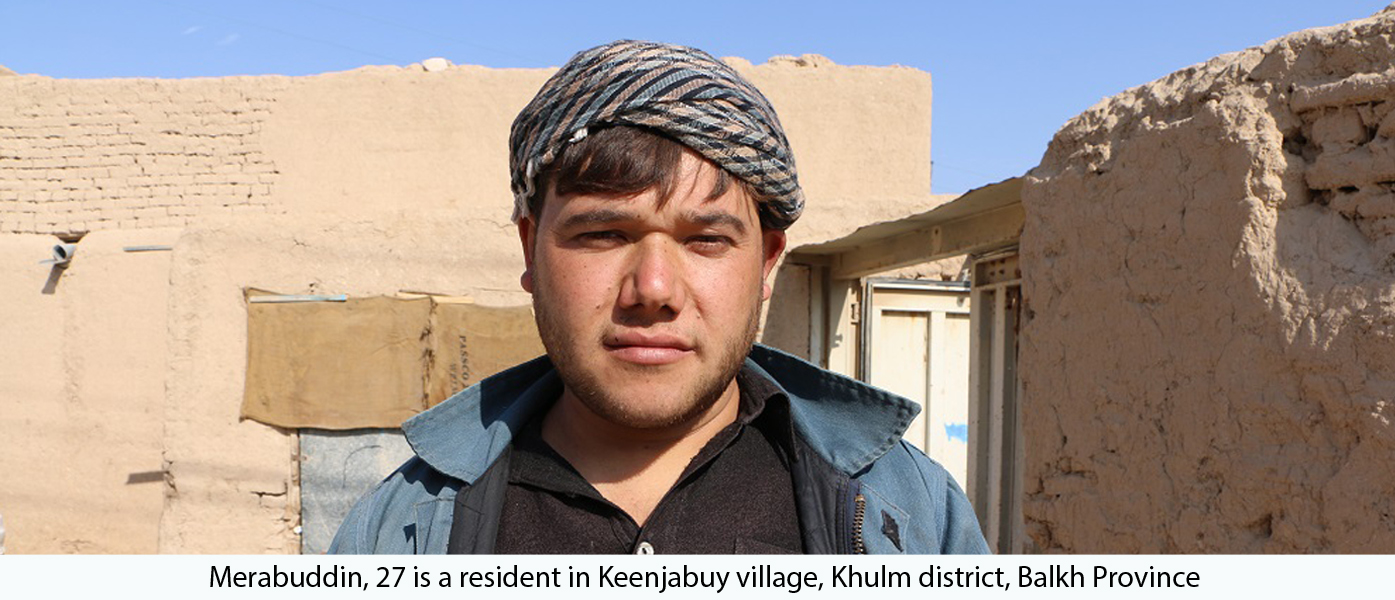
Leaking Pot is changing practices in Keenjabuy village
Keenjabuy village is located in Khulm district, Balkh province and around 4km far from district center. Near 70 families are living in this village. The Citizen’s Charter conducted the ‘leaking pot’ exercises sometimes back in the village.
The leaking pot tool educates villagers to identify and quantify main flows of money into/out of their households or community and make informed decisions to expand existing economic activities to produce more income, allowing for increased savings. It compares the sources of income and unnecessary causes of expenses expenditures such as weddings, funerals, advanced wages, unnecessary health expenditures and many other unfortunate traditions that drive families to poverty.
As such high expenses of wedding has made it a difficult dream for most of the Afghan youth to get married. However, the leaking pot training tool has encouraged Keenjabuy villagers to avoid some unnecessary expenses.
Merabuddin, 27 is a resident in Keenjabuy. He is a day labor worker and has just got married. Merabuddin has good lessons learned from the leaking pot exercise in the village.
“The money I spent for my wedding was 120,000 Afs in total, including 100,000 in cash as dowry (Toyana/Walwar) and only 20,000 for preparing traditional food for guests and other required main expenses”, said Merabuddin. He adds that learning from the leaking pot practices changed his mind. He avoided a lot of unnecessary spending and also did not invite too many guests.
The leaking pot is also used to discuss how to increase income and draw new strategies for the communities to perform certain cultural or social events with less expenses.
Gul Ahmad, Head of Keenjabuy CDC says, “In the past the groom family had to pay 300,000 Afs as dowry to bride family, but after we received leaking pot and well-being analysis trainings, it helped us to decrease Toyana to 200,000 Afs. In addition, the villagers are not willing to hold Henna and other so-called wedding complement ceremonies nowadays. They even do not print invitation cards.”
Gul Ahmad added that inviting too many guests to wedding ceremonies is also losing importance in the village. For example, in the past people invited up to 500 or 600 guests to such parties but now that it is declined to 300 guests or less.
The leaking pot exercise conducted as part of CCNPP tools in the communities has resulted tremendously in savings of the communities. For example, some of the CDCs initiated and passed a statement jointly signed by the villagers to reduce the size of dowry in their communities.
×
![]()